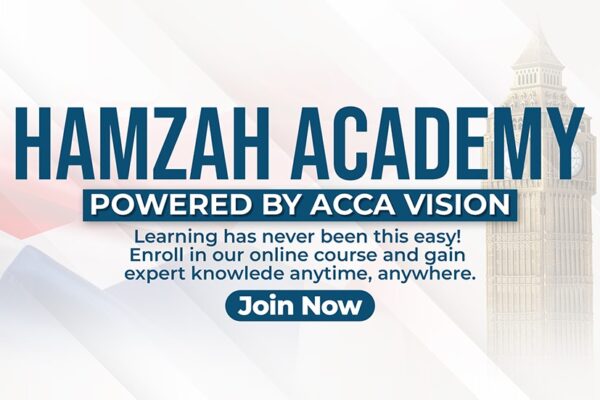Students are always looking for strategies to keep balance, get top marks, and satisfy the always rising list of academic criteria in the fast-paced and demanding academic scene of today. Some students under this strain think about or turn to outside test assistance—hiring someone else to help with or even take an exam on their behalf. The subject is divisive and begs serious issues concerning morality, legality, and long-term effects. Is paying for test aid only a shortcut, or can it be presented as a wise tactic under some circumstances? This paper explores both sides of the argument, looking at reasons, hazards, and more general consequences of such a decision.
Understanding the Drive Behind Exam Help
Exam assistance seeking students are not always sluggish or apathetic about their education. More often, an avalanche of academic obligations, personal obstacles, and failure-related anxiety overwhelms them. Many balance family duties, part-time employment, or many courses at once. Desperate from this tension, students may investigate paths that seem to provide fast fixes.
The phenomena of online learning has accentuated it even more. Online tests can lack the rigorous monitoring of in-person proctoring, which makes it more likely for students to seek illegal assistance undetectably. A basic web search reveals a great range of businesses guaranteeing anonymity, excellent marks, and quick results providing “take your exam for you.” Such promises might be rather appealing for a student hovering on the edge of academic disaster.
The Shortcut Perspective: Convenience Over Commitment
From one point of view, pay someone to take my online exam for me aid might be considered as a shortcut—a way to avoid the diligence and discipline usually connected with academic achievement. This point of view contends that outsourcing exam duties compromises the whole learning process. Exams are, after all, meant to gauge a student’s knowledge and ability to apply that information under duress. For the student who earns credentials without acquiring the information, the procedure loses relevance when another person takes the exam.
Moreover, the shortcut attitude stems from a need for quick results instead of long-term education. It gives grades above knowledge and results over ethics top priority. Under these circumstances, pupils can view education as a transactional system whereby the aim justifies the means rather than as a developmental road map. Designed to encourage development, research, and discipline, the academic institution turns into a barrier to be surmounted by whatever means required.
This method also encourages a dependent behavior. Students who depend on outside guidance constantly may lose faith in their own talents and grow to avoid difficult courses. Over time, this can impede both personal and professional growth and complicate performance in real-world situations devoid of such assistance.
The Strategic Perspective: Context Matters
Conversely, some contend that under some conditions requesting exam assistance might be a deliberate choice rather than a reckless shortcut. Advocates of this point of view sometimes point to fierce academic rivalry, huge stakes, and life events that seldom allow for mistakes. For example, foreign students overcoming language obstacles or learners coping with mental health issues might see such help as a required balance-off agent.
Furthermore, a rising industry of credible academic help companies offers coaching, exam preparation, and study aids. Most people agree these materials are tools for student progress. The debate starts when support veers toward direct replacement or mimicry. Some students contend, however, that if they are paying for a service that guarantees their ongoing academic status while they concentrate on other important chores, it might be seen as a smart rather than immoral action.
Students may also get disenchanted with a system many of which give rote memorization top priority above real learning. They could defend their choice to outsource exam tasks by seeing the process as an antiquated or biased assessment of intellect and aptitude. Paying for exam help, then, is more about effectively navigating a broken system than about cheating.
The Ethical Dilemma
This argument revolves on a fundamental ethical issue: is it right to lie about your knowledge and skills? Most academic institutions answer no quite definitely. Policies on academic integrity clearly forbid plagiarism, impersonation, and any sort of dishonesty. Ignoring these rules could have major repercussions for a student including suspension, expulsion, or a permanent blemish on their academic record.
The ethical questions still exist even if a pupil gets away from notice. Getting a degree or certificate under false pretenses reduces the value of the accomplishment for the academic institution as well as for the person. It also erases faith in the overall educational system. For students starting careers in professions, such dishonesty might be very risky. Imagine a doctor who passed tests fraudulently; this situation actually compromises public safety.
Fairness is another question as well. Students that study honestly and work hard suffer while others abuse the system. This disparity compromises academic accomplishments’ legitimacy and undermines the notion of meritocracy.
Legal and Academic Repercussions
Apart from moral issues, paying for test assistance could result in major legal and academic penalties. Many nations have laws against fraud and impersonation, particularly with reference to academic records. Should they be discovered, pupils run not just institutional fines but also legal prosecution. Among these repercussions may be fines, criminal prosecution, and a lifelong mark on their academic and professional records.
Schools use ever advanced methods to identify fraud. Schools are substantially investing in maintaining the quality of their examinations from plagiarism detection tools to AI-based monitoring systems. Often there is minimal opportunity for appeal or leniency when students are discovered utilizing illegal exam aid.
Sometimes years after graduation, whole degrees have been taken away upon fraud discovery. Paying for exam assistance becomes a possibly disastrous bet at this degree of risk. What first seems like a temporary fix might cause lifetime regret.
The Psychological Toll
Academic dishonesty’s psychological effects can be major even if a student is never discovered. Among students who cheat, guilt, worry, and a residual sensation of impostor syndrome are not unusual. Future academic achievement, personal relationships, and professional confidence can all be impacted by these emotional weighty loads.
Students who depend on dishonesty might question their own talents or be always afraid of being discovered. This uncertainty might accompany people into their professions, where performance usually depends on the very information and abilities they decided to avoid. The shortcut shows itself as a hindrance to actual personal growth and confidence over time.
Furthermore, the inner struggle brought forth by such choices could lower self-esteem. Understanding that one’s success was bought rather than earned might devaluate achievements and lead one to feel empty even in apparently successful times.
Long-Term Implications on Career and Reputation
Professional credentials can start with academic records. Transcripts and degrees help employers, licencing boards, and postgraduate schools evaluate a candidate’s credentials. Should it turn out that these qualifications were obtained dishonestly, the consequences might be quick and harsh.
Should academic dishonesty come to light, companies may revoke job offers or dismiss employees. Graduate schools may turn down applications; professional licencing authorities may cancel certificates. In cutthroat employment marketplaces, reputation is everything—and a damaged reputation from dishonesty is difficult to repair.
Integrity is nonnegotiable in some sectors. Fields including law, health, engineering, and finance call not just technical expertise but also moral behavior. In such careers, a compromised academic background might permanently block doors, therefore influencing not just money but also one’s feeling of purpose and identity.
Navigating Academic Challenges Responsibly
Students should investigate the several acceptable tools at hand to assist them achieve instead of turning to dangerous short cuts. Academic advisers, tutoring centres, mental health counsellors, and peer support groups are all meant to help students as needed without sacrificing their integrity.
Helping students reach their academic targets may be much enhanced by time management tactics, study strategies, and stress-reducing measures. Setbacks should be seen as chances for development instead than as dangers to be avoided. Exam or course difficulty is not a failure; rather, it is a natural aspect of the learning process. Overcoming those challenges develops confidence, discipline, and resiliency.
Furthermore, educational institutions have an obligation to design settings that encourage sincere learning. Schools can enable students make better decisions under pressure by lowering pointless academic pressure, supporting openness, and providing flexible learning alternatives.
Final Thoughts
Paying for test assistance might seem like a wise short-term plan, particularly for stressed or desperate students. On closer examination, though, it is more of a shortcut with major long-term repercussions. From moral and legal consequences to psychological and occupational harm, the hazards often exceed the benefits.
Real academic achievement is about mastering information, growing character, and becoming ready for challenges in the real world—not about grades or degrees. Though the journey may be tough, confronting such obstacles with integrity and tenacity presents a far more fulfilling pathway than any shortcut could provide.
Making ethical decisions now sets the groundwork for a prosperous, respected, and happy future. Ultimately, the real gratification of realizing your successes the correct manner cannot be replaced.
Follow Us
Recent Posts
-

Beach Tourism in India: Sun, Sand, and Serenity Await You
-

Best Online Platforms for ACCA Study Support in the Maldives
-

Trusted Nursing Assignment Help for Better Grades!
-

Online Cricket ID: Create an online cricket ID with the Cricket IDD platform
-

CUET PG 2026: Your Complete Guide to the Central University Entrance Test for Postgraduate Programs
Tags
#technology airline airlines american airlines customer service anti-virus asacc sdca business Chat Coinbase coinbase support number Crypto.com support number Email Expedia expedia customer service faq fashion helping Jetblue norton or Chat Options: Step by Step Guide qb quickbooks QuickBooks Payroll Support Number Service Support travel travels UnitedAirlines United Airlines werty
Leave a Reply
You must be logged in to post a comment.